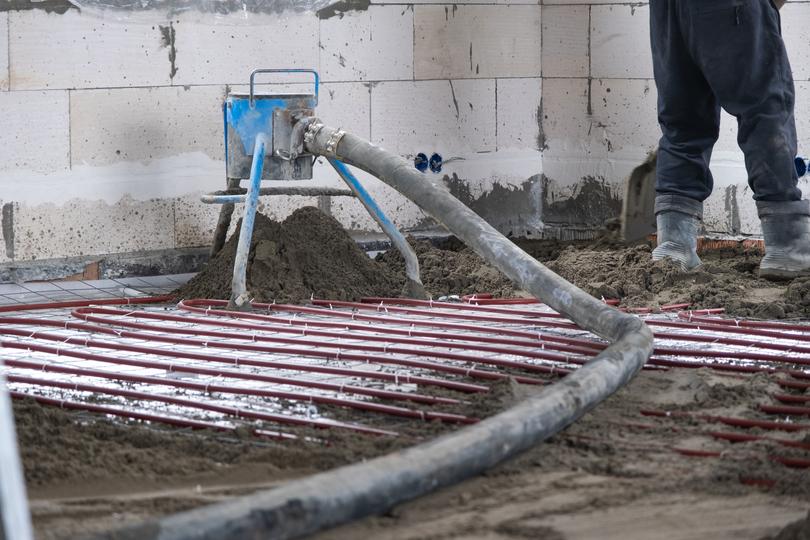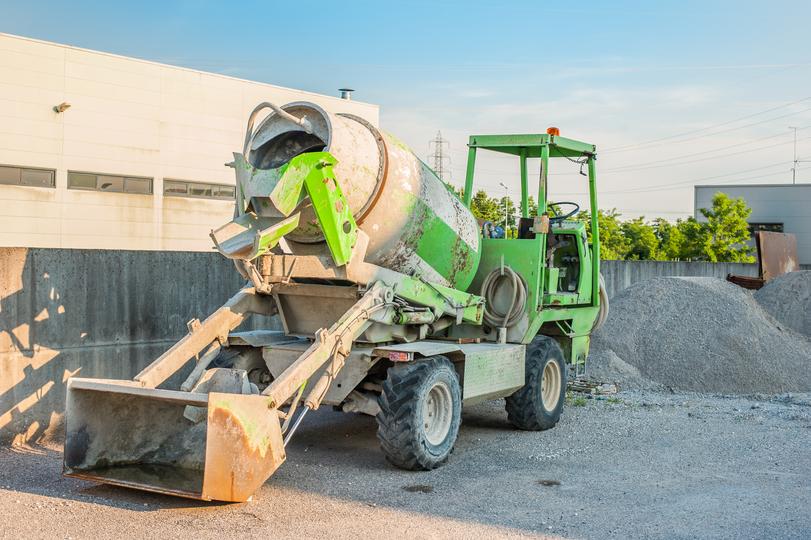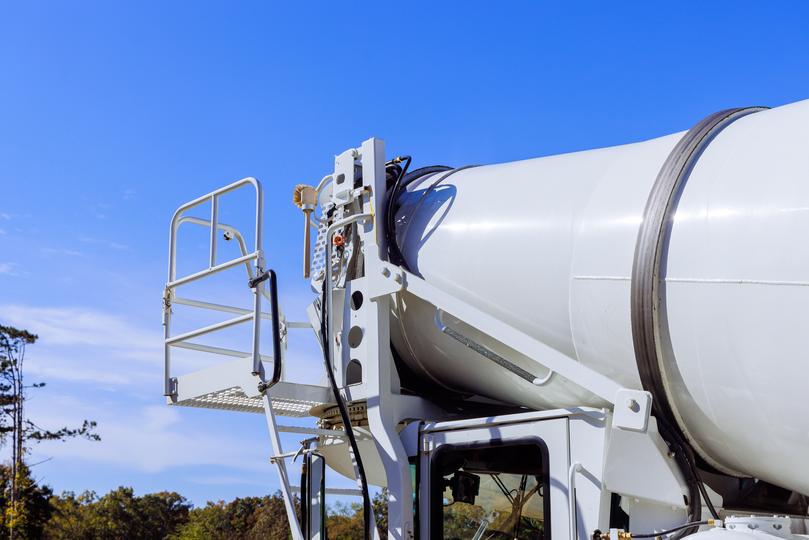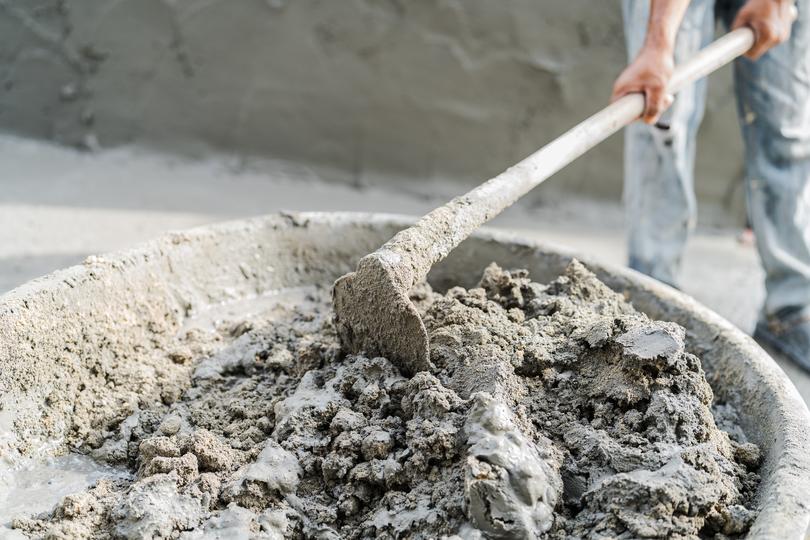Find Trusted Concrete Pumping Services On ConcreteMatch
Reach Any Pour Site With Concrete Pumping
Streamline your concrete pouring process. ConcreteMatch connects you with reliable and experienced concrete pumping services for any project.

Discover Other Concrete Solutions
ConcreteMatch offers a directory of concrete services. Find suppliers for ready-mix concrete, on-site concrete mixing, and more.
Specialized concrete solutions for commercial projects. Tailored to meet the unique requirements of large-scale construction.
Concrete solutions tailored for domestic construction projects. Ideal for residential buildings, driveways, and pathways.
High-quality ready mix concrete for all your construction needs. Delivered directly to your site for convenience and efficiency.
On-site concrete mixing and delivery services for construction projects. Reduces material waste and ensures optimal concrete quality.
On-site mixed volumetric concrete tailored to your specific requirements. Perfect for projects needing precise concrete quantities.
Advanced boom pumping services for placing concrete in hard-to-reach areas. Ideal for high-rise buildings and large-scale projects.
Efficient line pumping services for precise concrete placement. Perfect for small to medium-sized construction projects.
Professional screeding services for smooth, level floors. Suitable for both residential and commercial projects.
Concrete delivery and pouring services available outside regular business hours. Ideal for projects with strict timelines and schedules.
Durable and consistent ready mix mortar for masonry, rendering, and more. Delivered straight to your project location.
Affordable and reliable concrete pump hire services for projects of all sizes. Ensures efficient and precise concrete placement.
Affordable concrete mixer hire services for projects of all sizes. Reliable and well-maintained equipment delivered to your site.
Reliable suppliers of high-quality aggregates for construction projects. We offer a wide range of materials to meet your specific needs.
Specialized lightweight concrete ideal for projects requiring reduced structural load. Perfect for high-rise buildings and long-span bridges.
High-quality waterproof concrete designed to prevent water penetration. Ideal for basements, swimming pools, and water tanks.
No fines concrete ideal for lightweight and insulated concrete structures. Commonly used for walls and foundation backfills.
Manual barrowing services for transporting concrete and construction materials on-site. Ideal for projects with limited access.
Get multiple quotes from top-rated concrete suppliers near you. Compare quotes, save time, save money.
Durable and aesthetically pleasing concrete solutions for driveways. Customizable finishes to enhance curb appeal.
Strong and stable concrete bases for sheds. Ensures long-lasting and level foundation for your garden shed.
High-quality concrete for patio construction. Durable and customizable to match your outdoor living space.
Durable concrete solutions for sidewalk construction and repairs. Ensures safe and long-lasting walkways.
Reliable and strong concrete for building foundations. Ensures a stable and durable base for all types of structures.
Durable concrete for retaining wall construction. Provides strength and stability for various landscaping and structural needs.
High-strength concrete for garage floor construction. Ensures a durable and long-lasting surface that withstands heavy use.
Durable concrete solutions for basement construction. Ensures a strong and waterproof foundation for your home.
Custom concrete countertops for kitchens, bathrooms, and outdoor spaces. Durable, stylish, and easy to maintain.
High-quality concrete for floor construction. Ensures a durable and long-lasting surface for residential and commercial buildings.
Durable concrete for stair construction. Ensures safe and long-lasting stairs for residential and commercial buildings.
Find The Right Concrete Pumping Service With ConcreteMatch
Connecting with reliable concrete pumping professionals is easy with our simple process.

- Tell Us About Your Project
- Describe your concrete pumping needs and the specifics of your project, including the type of pump needed.
- We'll Find Matching Concrete Pumpers
- We connect you with reputable concrete pumping services in your area who can handle your project type.
- Compare Quotes & Choose
- Review quotes, explore services, and choose the concrete pumping service that best fits your requirements and budget.
- Get Your Project Done Right!
- With a trusted concrete pumping service on your team, you can ensure your concrete is placed efficiently and accurately.
Why Choose ConcreteMatch for Your Concrete Pumping Needs?
The smarter way to find Concrete Pump Service contractors
Here's how ConcreteMatch can help you find the perfect concrete pumping service for your project: We take the stress out of finding the right concrete supplier. Here's how:

- Trusted Professionals
- We connect you with vetted, reliable concrete pumping services that meet our standards for quality and service.
- Get Multiple Quotes
- Compare prices and services from different concrete pumping companies to find the best deal.
- Save Time & Effort
- Stop wasting time searching for the right concrete pumping service. Let ConcreteMatch do the work for you!
- Variety of Pumping Options
- Our directory includes concrete pumping companies with different types of pumps (boom pumps, line pumps, etc.) to suit your project's needs.
- Focus On Your Project
- We handle the contractor search so you can focus on other important aspects of your construction project.
- Free & Easy To Use
- ConcreteMatch is completely free for homeowners and businesses to use.
Need Concrete Pumping For Your Business?
Commercial Concrete Pumping
Find trusted commercial concrete pumping companies on ConcreteMatch. We specialize in connecting businesses with experienced professionals for large-scale projects.

Specialized concrete solutions for commercial projects. Tailored to meet the unique requirements of large-scale construction.

High-quality ready mix concrete for all your construction needs. Delivered directly to your site for convenience and efficiency.

On-site concrete mixing and delivery services for construction projects. Reduces material waste and ensures optimal concrete quality.

On-site mixed volumetric concrete tailored to your specific requirements. Perfect for projects needing precise concrete quantities.

Efficient concrete pumping services to place concrete precisely where you need it. Ideal for hard-to-reach areas and large projects.

Advanced boom pumping services for placing concrete in hard-to-reach areas. Ideal for high-rise buildings and large-scale projects.

Efficient line pumping services for precise concrete placement. Perfect for small to medium-sized construction projects.

Concrete delivery and pouring services available outside regular business hours. Ideal for projects with strict timelines and schedules.

Durable and consistent ready mix mortar for masonry, rendering, and more. Delivered straight to your project location.

Affordable and reliable concrete pump hire services for projects of all sizes. Ensures efficient and precise concrete placement.

Affordable concrete mixer hire services for projects of all sizes. Reliable and well-maintained equipment delivered to your site.

Reliable suppliers of high-quality aggregates for construction projects. We offer a wide range of materials to meet your specific needs.

Get multiple quotes from top-rated concrete suppliers near you. Compare quotes, save time, save money.
Concrete Pumping For Your Home Project?
Residential Concrete Pumping
ConcreteMatch connects you with reliable residential concrete pumping services. Get your concrete poured quickly and efficiently.

Concrete solutions tailored for domestic construction projects. Ideal for residential buildings, driveways, and pathways.

High-quality ready mix concrete for all your construction needs. Delivered directly to your site for convenience and efficiency.

On-site concrete mixing and delivery services for construction projects. Reduces material waste and ensures optimal concrete quality.

On-site mixed volumetric concrete tailored to your specific requirements. Perfect for projects needing precise concrete quantities.

Efficient concrete pumping services to place concrete precisely where you need it. Ideal for hard-to-reach areas and large projects.

Advanced boom pumping services for placing concrete in hard-to-reach areas. Ideal for high-rise buildings and large-scale projects.

Efficient line pumping services for precise concrete placement. Perfect for small to medium-sized construction projects.

Professional screeding services for smooth, level floors. Suitable for both residential and commercial projects.

Concrete delivery and pouring services available outside regular business hours. Ideal for projects with strict timelines and schedules.

Durable and consistent ready mix mortar for masonry, rendering, and more. Delivered straight to your project location.

Affordable and reliable concrete pump hire services for projects of all sizes. Ensures efficient and precise concrete placement.

Affordable concrete mixer hire services for projects of all sizes. Reliable and well-maintained equipment delivered to your site.

Reliable suppliers of high-quality aggregates for construction projects. We offer a wide range of materials to meet your specific needs.

Manual barrowing services for transporting concrete and construction materials on-site. Ideal for projects with limited access.

Get multiple quotes from top-rated concrete suppliers near you. Compare quotes, save time, save money.
Ready to Streamline Your Concrete Pouring?
Find The Best Concrete Pumping Services On ConcreteMatch!
Get connected with experienced concrete pumping professionals and get your project started today!